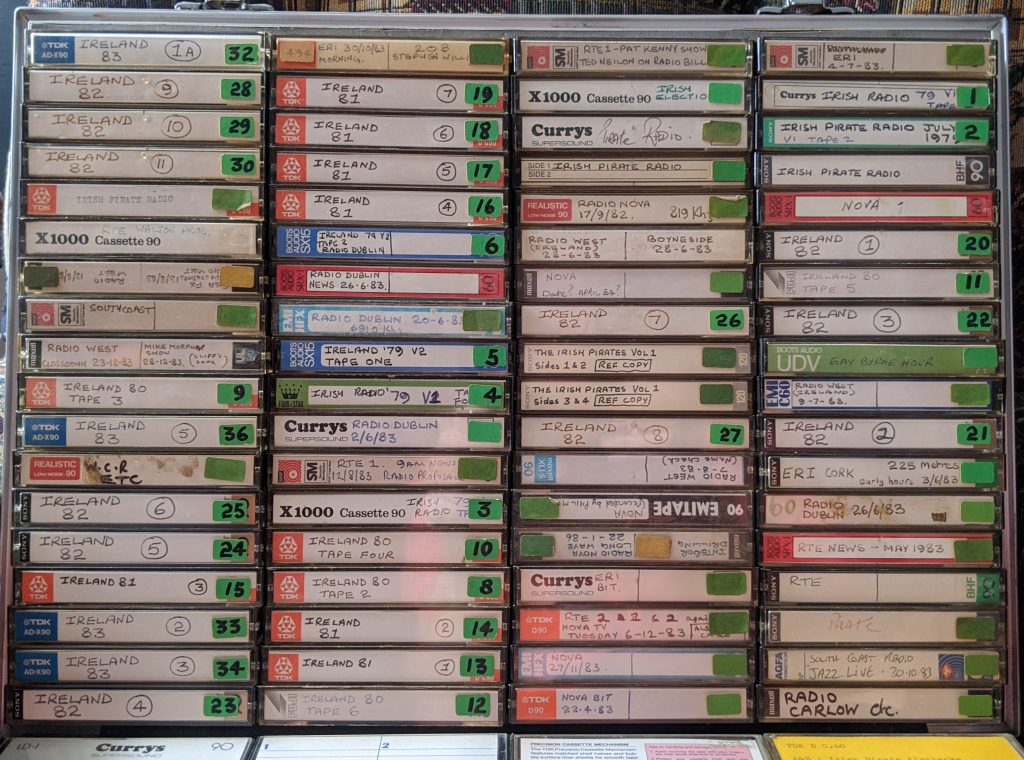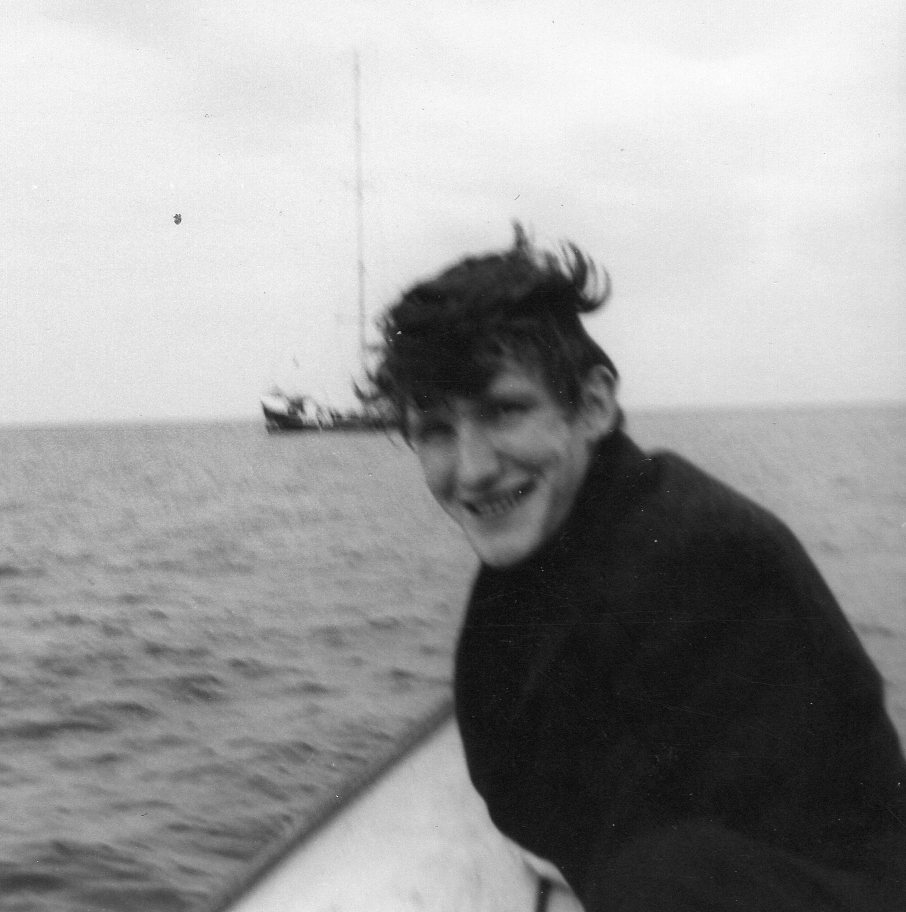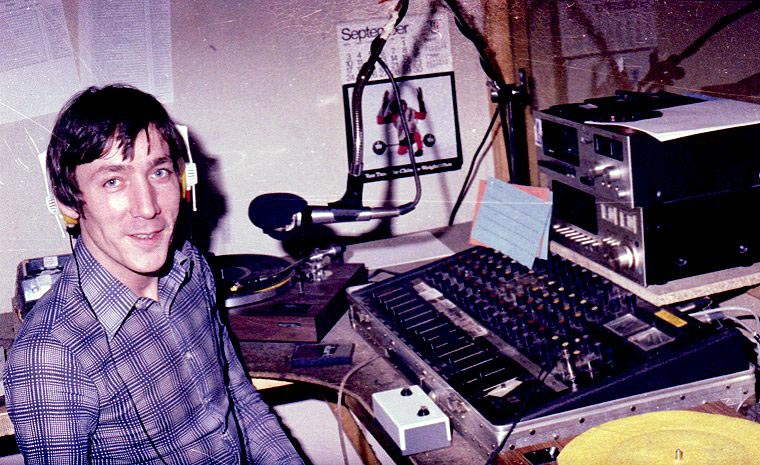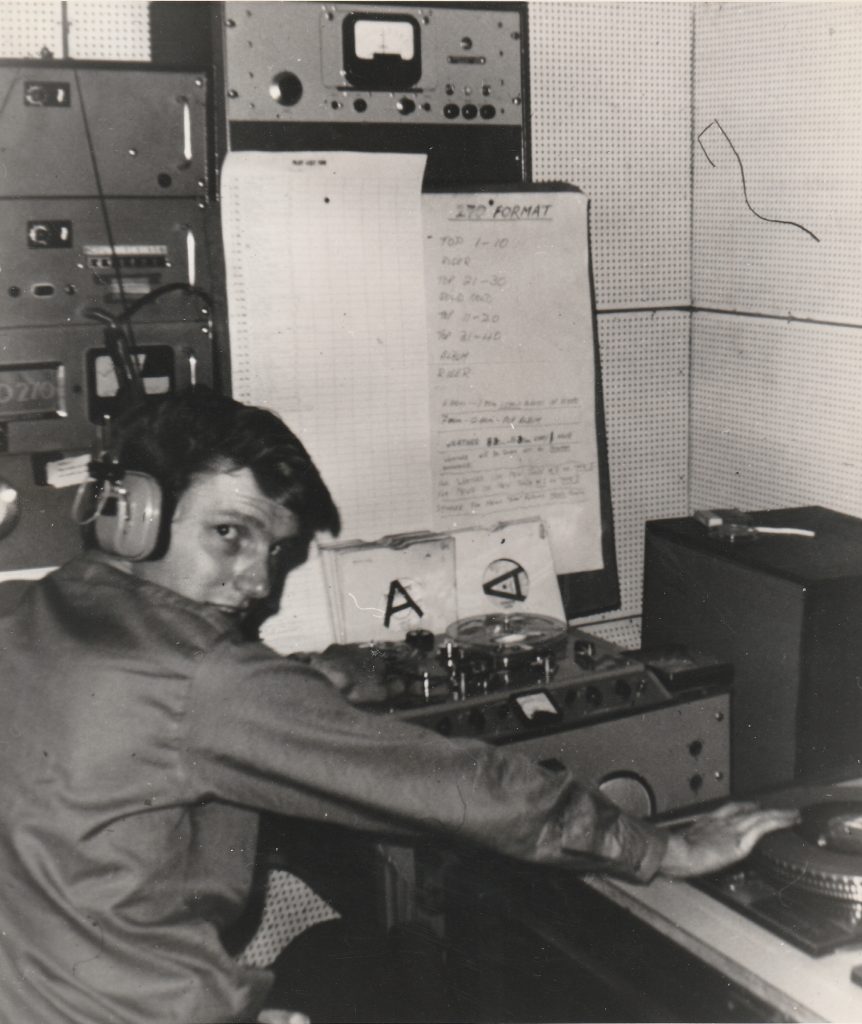Podcast: Play in new window | Download

English radio anorak Leon Tipler (RIP) returned to Ireland in August 1979 to record more of the Irish pirates and interview some of those involved in the expanding scene. This original recording from his collection features a visit to Radio Dublin and an interview with Aidan Jay (Aidan Cooney) about how the station was faring, its coverage area and plans to go on FM in the coming weeks.
A shorter version of this interview was included in Tipler’s acclaimed documentary series The Irish Pirates. This recording was made on 30th August 1979 and is donated to us by Steve England. Aidan Cooney continues to broadcast on radio to this day.




